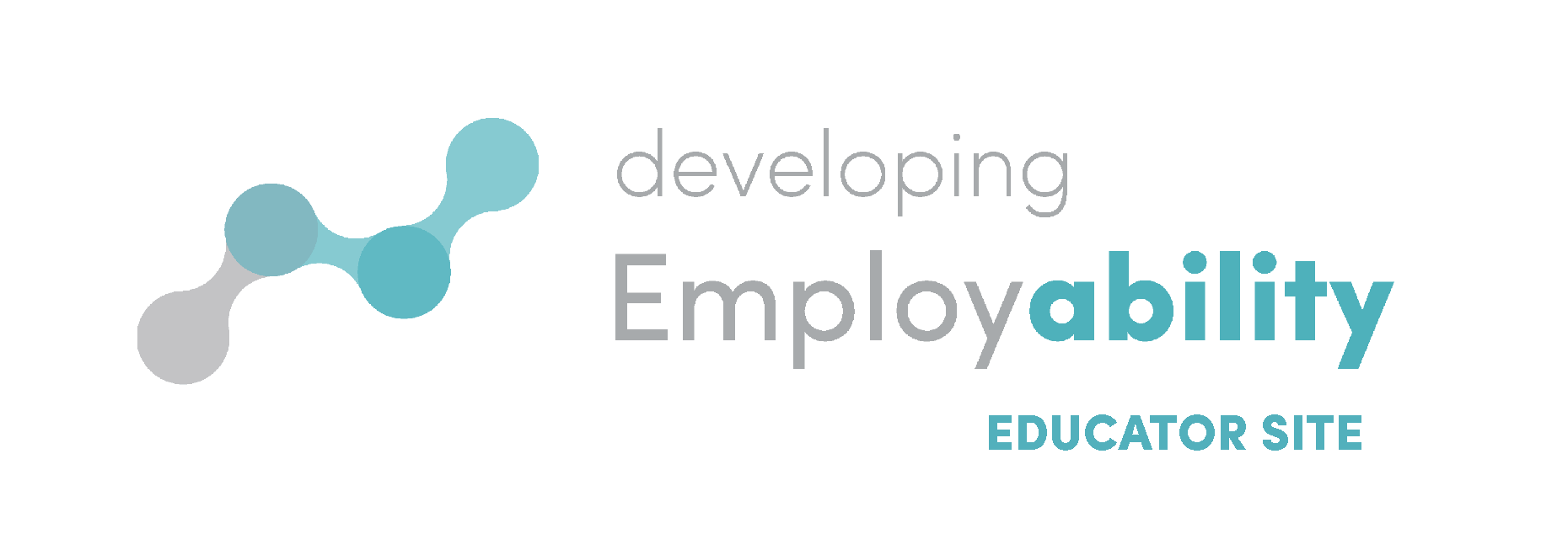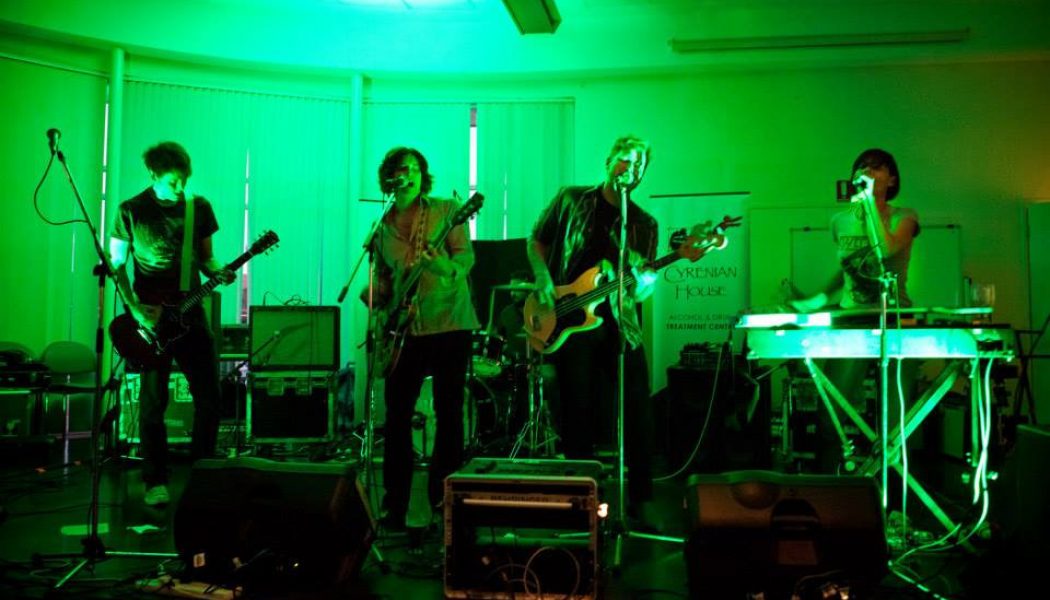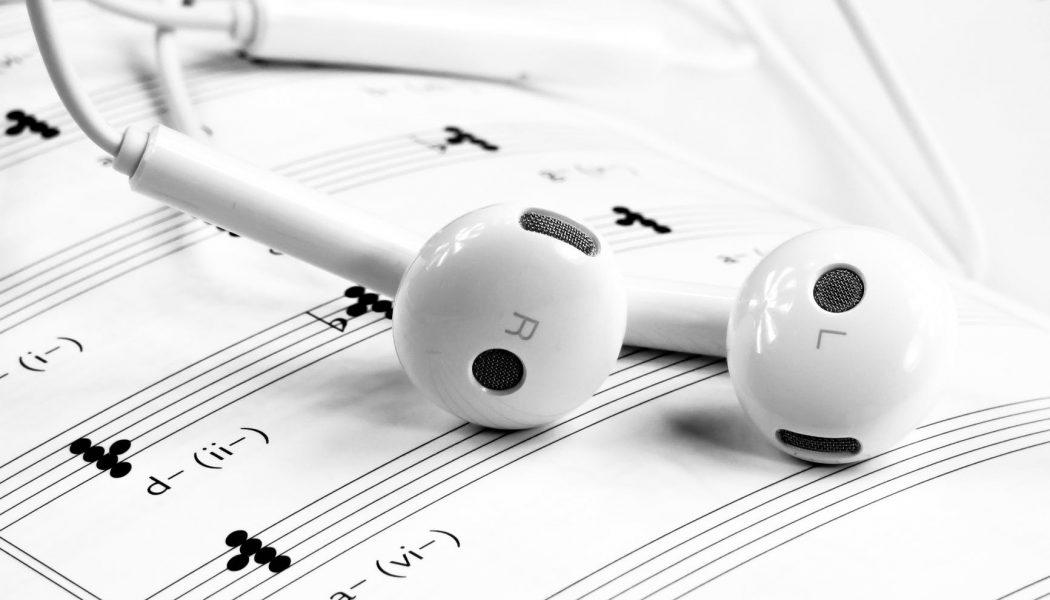Featured Resource
Featured resource: What’s your career vision?
Students need to conceptualise “career” as a multi-faceted concept rather than a single, full-time job. This week’s featured resource, ‘What’s your career vision?‘ asks students to consider their career in terms of time, money, vision and identity. The resource works well as a brainstorming activity, independent learning task or blog topic. All members of the Developing EmployABILITY community have access to the resources. If you haven’t signed up yet, become a member here. EmployABILITY resources are shared via a Creative Commons license. To learn more about the Developing EmployABILITY process, join the conversation at our Community of Practice on LinkedIn.
Featured resource: Career story – Using opportunities to grow
This week’s career story, ‘Using opportunities to grow’, features a musician who has been part of the music industry for a long time, working in many different contexts. The account is a great resource for helping students to explore different roles within the areas they are passionate about. The resource includes sample questions on how and why to learn from biographies and career stories. ‘Using opportunities to grow‘ is most effective if students have first created a personalised employABILITY profile as part of the 6-step Developing EmployABILITY process. EmployABILITY thinking resources are free to all members of the Developing EmployABILITY community. To become a member on our educator website, register here. To learn more about EmployABILITY thinking, join the conversation at ...
Featured resource: The art of the interview
This week’s featured resource looks at ‘The art of the interview’. This practical resource prompts learners to reflect on their personal experiences and prepare for interview questions which seek to identify critical thinkers, lifelong learners and reflexive practitioners. All members of the Developing EmployABILITY community have access to this resource.If you haven’t signed up yet, become a member here. There is no charge for any employABILITY resources. To learn more about the Developing EmployABILITY process, join the conversation at our Community of Practice on LinkedIn.
Featured resource: Speed Dating
How do students create three-minute pitches for capacity statements, elevator pitches or projects? This week’s featured resource shares a speed dating approach. The resource includes a sample invitation and event plan, questions, and links to associated resources. All members of the Developing EmployABILITY community have access to thes resources.If you haven’t signed up yet, become a member here. There is no charge for any employABILITY resources. To learn more about the Developing EmployABILITY process, join the conversation at our Community of Practice on LinkedIn.
Featured resource: Career story – Trying things out
EmployABILITY thinking involves exploration, risk and creativity. These characteristics are evident in the career story titled ‘Trying things out’, from Danish freelance trumpeter Jeppe Uggerhoej. When he was inyerviewed, Jeppe was a university graduate who had decided to create a portfolio career rather than pursue a full time role. His story demonstrates to students that lifestyle decisions can drive career decisions and that the flexibility of self-employment can for some people be a perfect fit. At the back of the resource you will find more information as well as sample questions on learning from biographies and career stories. ‘Trying things out’ is most effective if students have first created a personalised employABILITY profile as part of the 6-step Developing EmployABILITY proces...
Featured resource: Career story – Networking and microcommunities
This week, EmployABILITY thinking turns its attention to the importance of Networking and micro-communities, using a remarkable story from our Career Story series. In this story, renowned Australian artist Graham Hay talks about his career journey and his specialisation in paper clay. Graham brings to light the importance of creating and nurturing networks and he shares a candid account of building a successful career in the arts. The resource engages students in employABILITY thinking by asking them to reflect on what they have learned in their degrees and elsewhere and challenging them to leverage their experiences and connect with communities in their discipline. At the back of the resource is more information together with sample reflective questions. Networking and microcommunities is...
Featured resource: Learn positive self-talk
This week’s featured resource introduces students to the crucial concept of positive- and negative- self-talk. It links to further reading and an activity. All members of the Developing EmployABILITY community have access to this resource.If you haven’t signed up yet, become a member here.There is no charge for any employABILITY resources. To learn more about the Developing EmployABILITY process, join the conversation at our Community of Practice on LinkedIn.
Featured resource: Career story – Following your passion
This week’s EmployABILITY thinking resource is titled Following your passion and it comes from our Career Story series. This career story comes from a music graduate who followed her passion to create a diverse and successful career in music. The account is a great resource for understanding the myriad of opportunities available to graduates. When reading the account, students can reflect on what they have learned in their degree and how this may position them to follow their passion. At the back of the resource, you will find more information as well as sample questions on learning from biographies and career stories. Following your passion is most effective if students have first created a personalised employABILITY profile as part of the 6-step Developing EmployABILITY process. EmployAB...
Featured resource: How to form an effective group or team
This week we focus on a vital ability for both study and work: How to form an effective group or team. Group and team activities are a necessary component of student and professional life, so it is crucial for students to learn how to work well in teams and groups and how to communicate both orally and in writing. This resource aligns with another resource which prompts students to consider their likes, dislikes, strengths, and areas for development. Used together, students can easily pinpoint areas for development and they can build in peer learning during their group activities. The complementary resource is called ‘Creating a high-achieving group’. Students might also like to explore one of the feedback resources, which are really useful when difficulties arise. All members of the Devel...
Featured resource: Expert guide – Designing Successful Capstones
This week, employABILITY thinking is focusing on Designing Successful Capstones. This expert guide comes from Professor Nicolette Lee from La Trobe. Nicki explains: Capstones are substantial culminating learning experiences that take place in the final stage of an educational program, offering closure and a focus for the sense of achievement that comes with completion. The guide for educators provides key principles, things to avoid, a list of resources and links for further reading. EmployABILITY resources are free for all members of the Developing EmployABILITY community. To become a member, register here. To learn more about EmployABILITY thinking, join the conversation at our Community of Practice on LinkedIn.
Featured resource: Career story – Finding a career path after a general degree
This week’s EmployABILITY thinking resource is titled Finding a career path after a general degree and it comes from our Career Story series. This career story comes from a university graduate who completed her double degree in visual arts and Arabic. The account is a great resource for understanding how many people try multiple jobs to determine where their interests and lifestyle will fit best. The resource includes two questions for guided reflections. At the back of the resource, you will find more information as well as sample questions on learning from biographies and career stories. We have also developed an educator guide on how to use career stories with students. If you have other career stories to share, please let us know. Finding a career path after a general degree is most ef...
Featured resource: Compose your future
This week, employABILITY thinking launches the new music toolkit on the student website with a great resource titled Compose your future. The resource comes from our Developing EmployABILITY Music Toolkit and it is easily adapted to other disciplines: e.g., engineer your future, design your future etc. Why is there a music toolkit? EmployABILITY lead researcher Dawn Bennett has a background in music and some employABILITY resources originated in music education! The book in which some of the originals were published is titled Life in the real world: How to make music graduates employable and is available as an e-book and in hard copy. Compose your future helps students to recognise the relevance of a unit (course) of study to their future lives and work. For this reason, it is a really use...
























